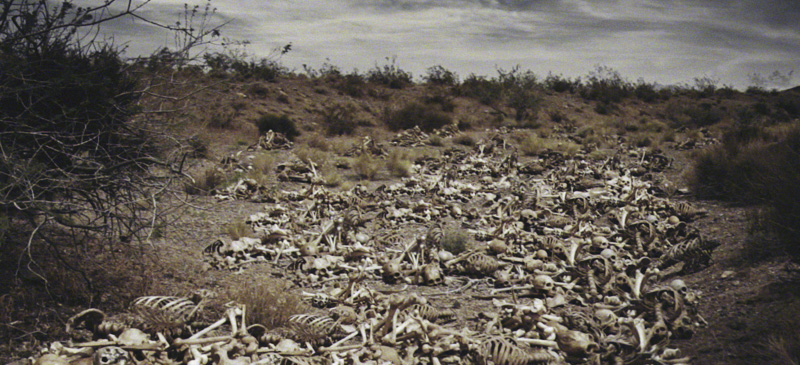====================
This sermon was preached on Sunday, September 2, 2012, at St. Paul’s Episcopal Church, Medina, Ohio, where Fr. Funston is rector.
(Revised Common Lectionary, Proper 17B: Song of Solomon 2:8-13; Psalm 45:1-2,7-10; James 1:17-27; and Mark 7:1-8,14-15,21-23.)
====================
 I want you for just a minute to close your eyes. Just sit back and relax, and imagine that you are hearing not my voice, but the voice of your beloved, the voice of the one person in this world who loves you more than any other . . . .
I want you for just a minute to close your eyes. Just sit back and relax, and imagine that you are hearing not my voice, but the voice of your beloved, the voice of the one person in this world who loves you more than any other . . . .
“Arise, my love, my fair one, and come away.”
Those words, of course, are from Scripture, from the Song of Songs or Song of Solomon, one of the oddest books in the Holy Bible, for it is nothing more nor less than a love song, a sensual and even erotic love song.
Our psalm this morning is also a love song. It is a marriage song which the Bible tells us was written by the Korahites or “Sons of Korah” for the wedding of a king. In fact, the Bible tells us a lot about this psalm, information that we don’t find in the Book of Common Prayer Psalter. First, it has an instruction: “To the leader: according to the Lilies.” Apparently this tells the choral director the tune or melody to which the psalm was to be sung. Second, it tells us that it was a song “of the Korahites” who were a musical guild (probably hereditary) in the Temple. Third, the psalm is described as a Maskil – this word is derived from a Hebrew word meaning “understanding” or “insight” and, thus, it is believed that Psalms so described are “insight-giving” or especially instructive. And, finally, it is described as a love song.
The insight comes, perhaps, in what is the third verse of our abbreviated recitation this morning:
Your throne, O God, endures for ever and ever,
a scepter of righteousness is the scepter of your kingdom;
you love righteousness and hate iniquity.
(Verse 7 in the BCP; vv. 6-7a in the NRSV)
In this verse, which has puzzled scholars for generations, though the singer seems still to be singing of the King, he names him “God”! The psalm appears to ascribe divinity to an earthly king which is something quite foreign to ancient Judaism. This is underscored by the last verse of the Psalm:
I will make your name to be remembered
from one generation to another;
therefore nations will praise you for ever and ever.
(Verse 18 in the BCP; v. 17 in the NRSV)
Here, this remarkable psalm lavishes on the human king the type of praise generally given to God! Christians, therefore, read this psalm as referring to Jesus, as we also read the Song of Solomon. The usual interpretation of both is that the Bridegroom or King is Jesus and the Bride or Queen is the church. However, in the middle ages the monastic mystics St. Teresa of Avila and St. Bernard of Clairvaux suggested a much more personal interpretation. In their commentaries Bernard and Teresa envisioned the love between Christ the Bridegroom and his bride, the individual soul, and they noted the way in which that love overflows to others.
For Bernard, the Song is about the manner in which the “thirsting soul” can rediscover the power of God’s love. “What a great thing is love, provided always that it returns back to its origin,” he writes; “flowing back again into its source, it acquires fresh strength to pour itself forth once again.” (On the Songs of Songs 83:4) Our journey to God’s love does not consist in our finding the path, but rather in being found on the path by Christ the Bridegroom who passionately seeks us. “Arise, my love, my fair one, and come away,” are words spoken by Christ to each one of us as he invites us to follow him. But the divine love is never intended to be, and is not complete if it is, purely individual and personal.
Bernard writes that the human soul aflame with the love of God “strives to win [other] souls with its habitual fire and renewed courage.” (58:1) “Love reveals itself,” he writes, “not by words or phrases, but by action and experience.” (70:1) Thus, says St. Bernard, love of God is not merely a personal experience; it is never complete unless it leads us to love our neighbors.
For Teresa of Avila, similarly, the Bridegroom’s call leads the soul back from a lack of love to love most fully realized:
Along how many paths, in how many ways, by how many methods You show us love! …[Not] only with deeds do You show this love, but with words so capable of wounding the soul in love with You that You say them in this Song of Songs and teach the soul what to say to You. (Meditations on the Song of Songs 3:14)
Using the sisters Martha and Mary of Bethany, as examples, Teresa, like Bernard, writes that the Song propels us to an exterior expression of love of neighbor. Only disciples who both pray with fervent desire and care for their neighbors, she writes, “imitate the laborious life that Christ lived.” (7:8)
So with the background of these songs of a divine love that compels us to share the love of God with those around us, we turn to today’s Gospel story of Jesus being confronted by and answering the Pharisees. The confrontation is over an issue of ritual cleansing, the failure of Jesus’ disciples to wash their hands before eating. Jesus, however, quickly turns that objection aside quoting from the 29th chapter of Isaiah, “‘This people honors me with their lips, but their hearts are far from me . . . . ” For Jesus the question is not one of ritual, not one of purity, not one of custom, not one of tradition. For Jesus the issue is love. “Their hearts are far from me.”
“Look,” he says, “the issue is not what’s on the outside. What’s on the outside cannot defile you. The issue is what’s on the inside. If the human heart is not filled with love, all sorts of filth results. If the human heart is not turned toward God with love, the result is disastrous.”
“Arise, my love, my fair one, and come away.”
Understand, the Pharisees weren’t bad people. They were trying to be good Jews. As the People of God, the Jews believed that God wanted them to be separate from other nations and peoples, that God wanted them to be pure and spotless. The word Pharisee means literally “separate ones.” They believed that the better and more stringently you observe the ritual practices, the more you were separate from, different from, and therefore more holy than others. Jesus was just telling them they were wrong, so he quoted from Isaiah about the heart and about love. This was the same prophet he quoted when he began his public ministry in his hometown synagogue in Nazareth. There, he read a passage from the 61st chapter of Isaiah. As Luke reports,
the scroll of the prophet Isaiah was given to him. He unrolled the scroll and found the place where it was written: “The Spirit of the Lord is upon me, because he has anointed me to bring good news to the poor. He has sent me to proclaim release to the captives and recovery of sight to the blind, to let the oppressed go free, to proclaim the year of the Lord’s favor.” (Luke 4:17-19)
Where the Pharisees sought to be separated from the unclean around them, Jesus preached the love of God which compels us to serve those around us, especially the ones who are considered unclean. Where the Pharisees were concerned about cleaning cups and washing hands, Jesus was concerned about cleaning lepers and washing their wounds. “Love reveals itself,” St. Bernard writes, “not by words or phrases, but by action and experience.” Only disciples who both pray with fervent desire and care for their neighbors, writes St. Teresa, “imitate the laborious life that Christ lived.”
This is the theme James takes up in today’s reading from his epistle: “Be doers of the word, and not merely hearers who deceive themselves.” “Religion that is pure and undefiled before God, the Father,” writes James, “is this: to care for orphans and widows in their distress, and to keep oneself unstained by the world.”
And this is what the Baptismal Covenant is all about. In a few minutes, we will baptize an infant, Finn, and an adult, John. Together with them and their sponsors, we will all reaffirm our own Baptismal Covenant as they make theirs. We will be asked, “Do you believe in God the Father? Do you believe in Jesus Christ, the Son of God? Do you believe in the Holy Spirit?” Answering these questions, we will prove ourselves to be hearers of the word. But that is not the end of the Baptismal Covenant.
We will then be asked these five questions:
- Will you continue in the apostles’ teaching and fellowship, in the breaking of bread, and in the prayers?
- Will you persevere in resisting evil, and, whenever you fall into sin, repent and return to the Lord?
- Will you proclaim by word and example the Good News of God in Christ?
- Will you seek and serve Christ in all persons, loving your neighbor as yourself?
- Will you strive for justice and peace among all people, and respect the dignity of every human being?
In other words, we will be asked, “Will you be doers of the word, and not merely hearers?” Our response will be, “I will, with God’s help.”
In Baptism, the Christ the Bridegroom embraces us as his own. “Arise,” he says as we come up out of the Baptismal waters, “Arise, my love, my fair one, and come away.” Come away not to be separated from others, but come away to share God’s overflowing love with them. Come away to strive to win other souls with habitual fire and renewed courage. Come away to imitate the laborious life that Christ the Bridegroom lived. “Arise, my love, my fair one, and come away.”
Amen.

 Our first reading this morning is from a little book from the Apocrypha called The Book of Wisdom. At one time church tradition ascribed authorship to King Solomon, but it is now believed to have been written sometime in the first or second century before Christ by a Greek-speaking Jew of the Diaspora. It is found in the Greek-language version of Jewish scriptures, not in the Hebrew version, and is therefore not considered as canonical scripture by Jews or by Protestants. Roman Catholics and the Eastern Orthodox do accept it, and we Anglicans take a middle course, saying that we read them “for example of life and instruction of manners; but yet [we do] not apply them to establish any doctrine.” (Articles of Religion, Art. VI, BCP 1979, pg. 868). Well, here’s an example of life, then:
Our first reading this morning is from a little book from the Apocrypha called The Book of Wisdom. At one time church tradition ascribed authorship to King Solomon, but it is now believed to have been written sometime in the first or second century before Christ by a Greek-speaking Jew of the Diaspora. It is found in the Greek-language version of Jewish scriptures, not in the Hebrew version, and is therefore not considered as canonical scripture by Jews or by Protestants. Roman Catholics and the Eastern Orthodox do accept it, and we Anglicans take a middle course, saying that we read them “for example of life and instruction of manners; but yet [we do] not apply them to establish any doctrine.” (Articles of Religion, Art. VI, BCP 1979, pg. 868). Well, here’s an example of life, then: Did you listen carefully or perhaps even follow along in the Prayer Book when I offered our opening prayer today, the Collect for Trinity Sunday? Listen to it again:
Did you listen carefully or perhaps even follow along in the Prayer Book when I offered our opening prayer today, the Collect for Trinity Sunday? Listen to it again: What happened one thousand nine hundred and seventy-nine years ago?
What happened one thousand nine hundred and seventy-nine years ago?
 If so, then receive it. [Each congregant was given a bottle of water when they entered the church.] I want you to give your bottle of water to someone whom you think might need some spiritual refreshment; and I want you to accept a bottle of water from someone who thinks you might need some spiritual refreshment. Let these bottles of water remind you that you are a source of refreshment to others, and that through others God provides you with spiritual renewal.
If so, then receive it. [Each congregant was given a bottle of water when they entered the church.] I want you to give your bottle of water to someone whom you think might need some spiritual refreshment; and I want you to accept a bottle of water from someone who thinks you might need some spiritual refreshment. Let these bottles of water remind you that you are a source of refreshment to others, and that through others God provides you with spiritual renewal. This psalm is not the only time Holy Scripture reports God’s displeasure with the sacrifice of animals. Consider these words from the first chapter of the Book of Isaiah, “What to me is the multitude of your sacrifices? says the Lord; I have had enough of burnt offerings of rams and the fat of fed beasts; I do not delight in the blood of bulls, or of lambs, or of goats. When you come to appear before me, who asked this from your hand? Trample my courts no more; bringing offerings is futile; incense is an abomination to me. New moon and sabbath and calling of convocation – I cannot endure solemn assemblies with iniquity.” (Isa. 1:11-13) Despite all of the ritual directions found in the Law and in the Histories (see, e.g., Exodus 29, Leviticus 1, Numbers 7, and 1 Kings 18), the Psalmist, the first Isaiah, and especially the Prophet Micah make it very clear that sacrificing innocent animals is not what Judaism (or religion in general) is all about. Micah writes, “‘With what shall I come before the Lord, and bow myself before God on high? Shall I come before him with burnt offerings, with calves a year old? Will the Lord be pleased with thousands of rams, with ten thousands of rivers of oil? Shall I give my firstborn for my transgression, the fruit of my body for the sin of my soul?’ He has told you, O mortal, what is good; and what does the Lord require of you but to do justice, and to love kindness, and to walk humbly with your God?” (Micah 6:6-8) It may be that doing justice, loving kindness, and walking with God may (and often does) require one to give up one’s possessions, one’s livelihood, even one’s life. But such “sacrifice” without the demanded ethical basis, sacrifice done only to curry favor with God, is not what God asks or wants. ~ It is from this ethical stream in ancient Judaism that Christianity flows. It is unfortunate that early Christian writers looked back to the sacrificial practices of the Temple to find an analog to crucifixion of Jesus; we might have seen the Christian religion develop differently if, like the writers of the Gospels, they had looked more to the prophets. Jesus certainly did: “‘You shall love the Lord your God with all your heart, and with all your soul, and with all your mind.’ This is the greatest and first commandment. And a second is like it: ‘You shall love your neighbor as yourself.’ On these two commandments hang all the law and the prophets.” (Matthew 22:37-40) ~ So spare that bull! Sacrifices of animals (or their modern analogs, whatever they may be) are not the sacrifices that demonstrate love of God and love of neighbor. Rather, the core of ethical religion is as the writer of the Letter to Hebrews said: “Do not neglect to do good and to share what you have, for such sacrifices are pleasing to God.” (Heb. 13:16)
This psalm is not the only time Holy Scripture reports God’s displeasure with the sacrifice of animals. Consider these words from the first chapter of the Book of Isaiah, “What to me is the multitude of your sacrifices? says the Lord; I have had enough of burnt offerings of rams and the fat of fed beasts; I do not delight in the blood of bulls, or of lambs, or of goats. When you come to appear before me, who asked this from your hand? Trample my courts no more; bringing offerings is futile; incense is an abomination to me. New moon and sabbath and calling of convocation – I cannot endure solemn assemblies with iniquity.” (Isa. 1:11-13) Despite all of the ritual directions found in the Law and in the Histories (see, e.g., Exodus 29, Leviticus 1, Numbers 7, and 1 Kings 18), the Psalmist, the first Isaiah, and especially the Prophet Micah make it very clear that sacrificing innocent animals is not what Judaism (or religion in general) is all about. Micah writes, “‘With what shall I come before the Lord, and bow myself before God on high? Shall I come before him with burnt offerings, with calves a year old? Will the Lord be pleased with thousands of rams, with ten thousands of rivers of oil? Shall I give my firstborn for my transgression, the fruit of my body for the sin of my soul?’ He has told you, O mortal, what is good; and what does the Lord require of you but to do justice, and to love kindness, and to walk humbly with your God?” (Micah 6:6-8) It may be that doing justice, loving kindness, and walking with God may (and often does) require one to give up one’s possessions, one’s livelihood, even one’s life. But such “sacrifice” without the demanded ethical basis, sacrifice done only to curry favor with God, is not what God asks or wants. ~ It is from this ethical stream in ancient Judaism that Christianity flows. It is unfortunate that early Christian writers looked back to the sacrificial practices of the Temple to find an analog to crucifixion of Jesus; we might have seen the Christian religion develop differently if, like the writers of the Gospels, they had looked more to the prophets. Jesus certainly did: “‘You shall love the Lord your God with all your heart, and with all your soul, and with all your mind.’ This is the greatest and first commandment. And a second is like it: ‘You shall love your neighbor as yourself.’ On these two commandments hang all the law and the prophets.” (Matthew 22:37-40) ~ So spare that bull! Sacrifices of animals (or their modern analogs, whatever they may be) are not the sacrifices that demonstrate love of God and love of neighbor. Rather, the core of ethical religion is as the writer of the Letter to Hebrews said: “Do not neglect to do good and to share what you have, for such sacrifices are pleasing to God.” (Heb. 13:16) Last Sunday the Year B Revised Common Lectionary for the 5th Sunday in Lent called for a reading from the Prophet Jeremiah which included these words from God, “I will put my law within them, and I will write it on their hearts.” (Jer. 3:33) My son Patrick, who is a priest in Kansas, preached
Last Sunday the Year B Revised Common Lectionary for the 5th Sunday in Lent called for a reading from the Prophet Jeremiah which included these words from God, “I will put my law within them, and I will write it on their hearts.” (Jer. 3:33) My son Patrick, who is a priest in Kansas, preached  The simple answer is that fasting is going without some or all food or drink or both for a defined period of time. An absolute fast is abstinence from all food and liquid for a period of at least one day, sometimes for several days. Other fasts may be only partially restrictive, limiting particular foods or substance. The fast may also be intermittent in nature; for example, Muslims fast during the daylight hours of the month of Ramadan which is intended to teach Muslims patience, spirituality, humility, and submissiveness to God. Fasting as a spiritual practice is common to all major religions. Mahatma Gandhi once noted:
The simple answer is that fasting is going without some or all food or drink or both for a defined period of time. An absolute fast is abstinence from all food and liquid for a period of at least one day, sometimes for several days. Other fasts may be only partially restrictive, limiting particular foods or substance. The fast may also be intermittent in nature; for example, Muslims fast during the daylight hours of the month of Ramadan which is intended to teach Muslims patience, spirituality, humility, and submissiveness to God. Fasting as a spiritual practice is common to all major religions. Mahatma Gandhi once noted:

